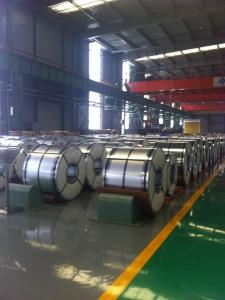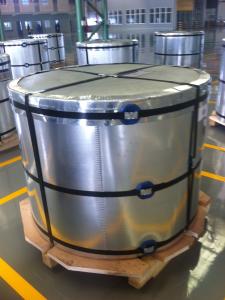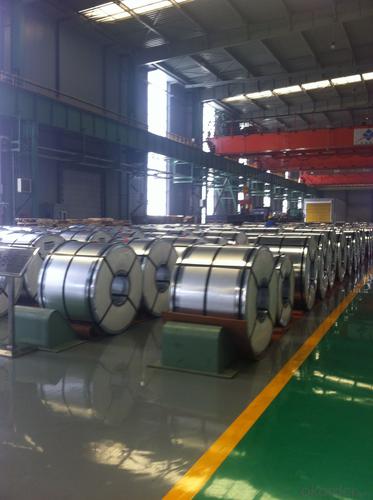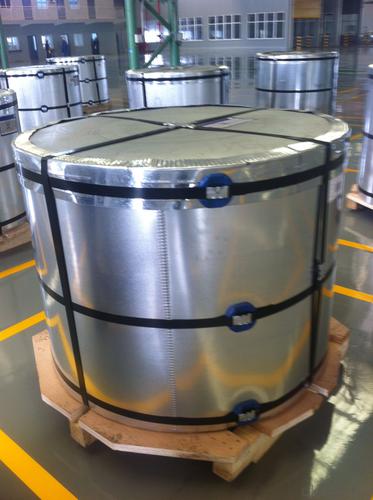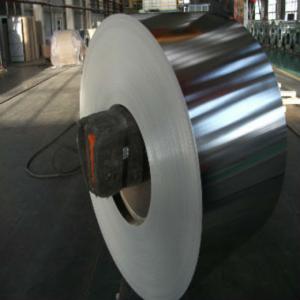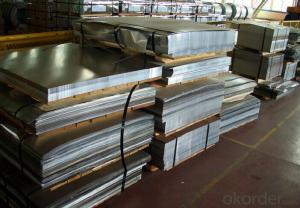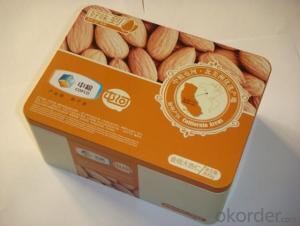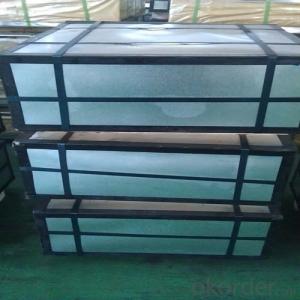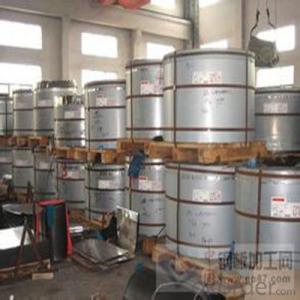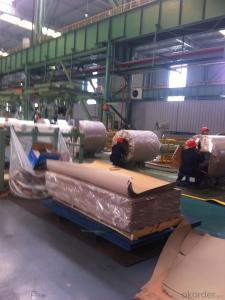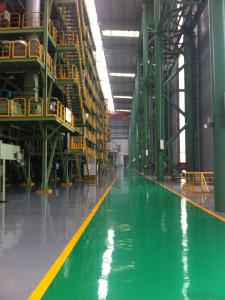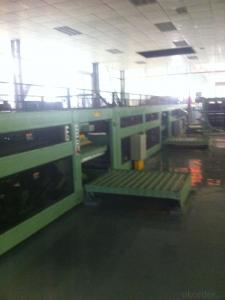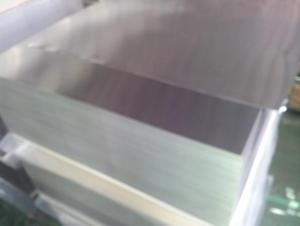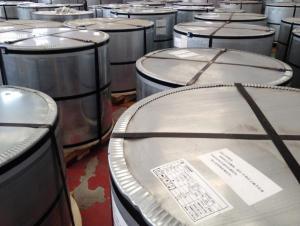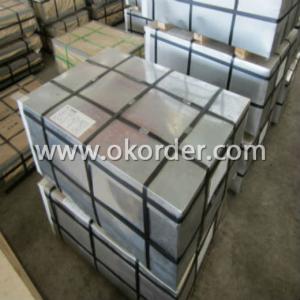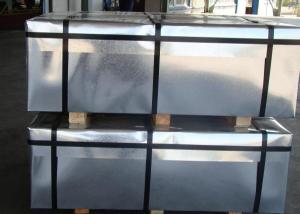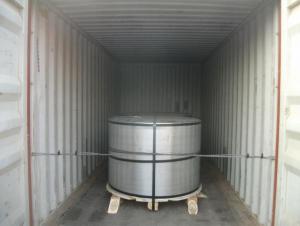Prime Quality Tinplate Sheets for 0.21mm
- Loading Port:
- Tianjin
- Payment Terms:
- TT OR LC
- Min Order Qty:
- 25 m.t.
- Supply Capability:
- 8000 m.t./month
OKorder Service Pledge
OKorder Financial Service
You Might Also Like
1.Structure Description
Electrolytic Tinplate Sheets is one of the metal packing materials, which is widely used for making painting cans ,chemical package cans , electrical cable ,battery and metal printing etc.
2. Main Features
Steady and high quality
Fast shipment
Good experience for export work
For the surface, Plate uniform in thickness,uniform and smooth tin coating, without flaws,rusts,scratch,wave,nick of tin coating etc.
Price competitive
3.Images
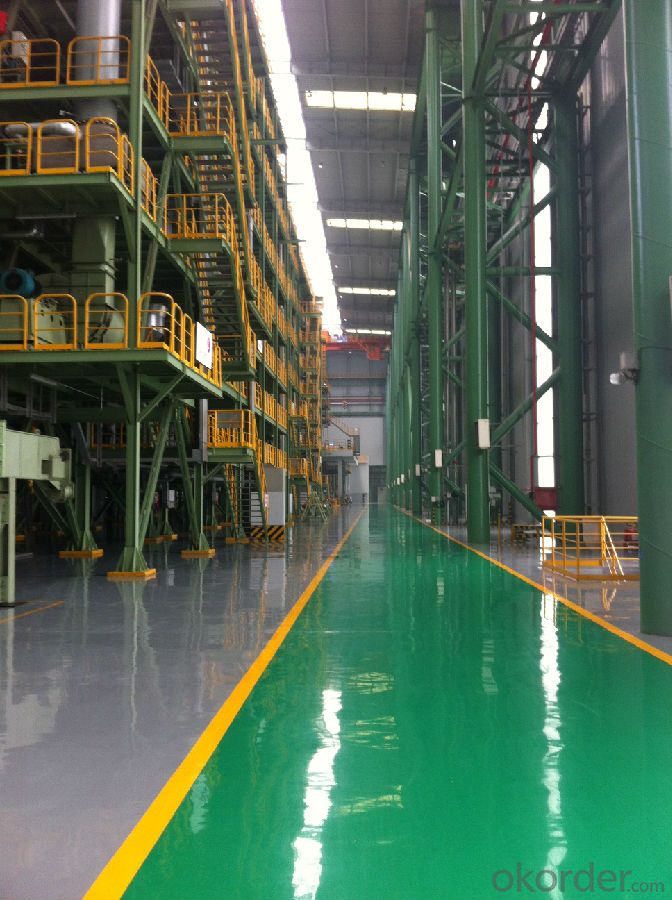
4. Specification
Standard : GB2520-2000 ,JIS G3303
Steel type : SPCC
Coating : 2.8/2.8
Surface: Bright, Stone ,
Thickness:0.26
Width :600MM~1000MM
Temper : T1~T5
Package: tinplate wrapped completely with an inner cover of plastic or waterproof papers with vorners protected with metal angels.
5.FAQ
A. What is the package of tinplate? (Referred as below)
For sheets, thin plastic film + rust-proof paper + metallic cover + metallic angles+ steel band strips + fumigated wooden pallet.
For coil, thin plastic film + rust proof paper + metallic cover + steel band strips + fumigated wooden pallet
B. The surface of tinplate could you supply?
Stone finish, Bright finish, Matte finish, Silver finish
- Q: Can tinplate be used for bakery packaging?
- Yes, tinplate can be used for bakery packaging. Tinplate is a type of steel coated with a thin layer of tin, which provides excellent protection against moisture and oxygen. It is commonly used in the food industry, including bakery packaging, as it helps preserve the freshness and quality of baked goods. Additionally, tinplate is durable, recyclable, and has good heat resistance, making it suitable for bakery packaging requirements.
- Q: How does tinplate handle exposure to pressure and impact?
- Tinplate is known for its excellent ability to handle exposure to pressure and impact. Its durable and sturdy nature allows it to withstand external forces without deformation or breakage. This makes tinplate suitable for various applications where it needs to withstand pressure or impacts, such as packaging, cans, and industrial components.
- Q: What are the common decorative options for tinplate packaging?
- Some common decorative options for tinplate packaging include embossing, lithography, and spot varnishing. Embossing involves creating raised designs on the surface of the tinplate, adding texture and visual interest. Lithography is a printing technique that allows for vibrant colors and intricate designs to be applied to the tinplate. Spot varnishing is a method of selectively applying a glossy finish to certain areas of the packaging, creating a contrasting effect. These decorative options can enhance the overall aesthetic appeal of tinplate packaging and make it more visually appealing to consumers.
- Q: Can tinplate be recycled?
- Yes, tinplate can be recycled. It is made of steel coated with a thin layer of tin, and both steel and tin can be recycled indefinitely without losing their properties. Recycling tinplate helps conserve resources and reduce waste.
- Q: Cookies with tinplate packaging has what advantage
- 1. good mechanical properties: tinplate cans relative to other containers, such as plastic, glass, paper containers and strength, and good rigidity, it is not easy to break. It is not only used for small sale packing, but also the main container for large transportation package. 2. excellent barrier: Tin than any other...
- Q: How does tinplate packaging contribute to product ease of use?
- Tinplate packaging contributes to product ease of use by providing a sturdy and durable material that is easy to open, close, and handle. Its smooth surface allows for effortless stacking and storage, while its lightweight nature makes it convenient to carry. Additionally, tinplate packaging often incorporates user-friendly features such as easy-to-grip lids and pull-tabs, enhancing the overall user experience.
- Q: What are the advantages of using tinplate for construction materials?
- One of the advantages of using tinplate for construction materials is its durability. Tinplate is known for its exceptional strength and resistance to corrosion, making it suitable for various construction applications. Additionally, tinplate is lightweight, which allows for easier handling and installation. Furthermore, tinplate offers excellent aesthetic appeal, as it can be easily painted or decorated to match any desired design. Overall, tinplate's durability, lightweight nature, and aesthetic versatility make it a favorable choice for construction materials.
- Q: How is tinplate price determined?
- The price of tinplate is determined by various factors including the cost of raw materials, market demand and supply, production and manufacturing costs, as well as any additional taxes or tariffs imposed on the product. Additionally, global economic conditions, exchange rates, and competition within the industry can also influence the pricing of tinplate.
- Q: How is tinplate used in the pet food industry?
- Tinplate is commonly used in the pet food industry for packaging purposes. It is an ideal material for manufacturing cans and containers that store pet food due to its durability, resistance to corrosion, and ability to maintain food freshness and quality. Tinplate cans are also easily stackable, making them convenient for storage and transportation.
- Q: Can tinplate be used for consumer electronics packaging?
- Yes, tinplate can be used for consumer electronics packaging. Tinplate is a type of steel coated with a thin layer of tin, which provides durability, corrosion resistance, and a visually appealing finish. It is commonly used for packaging various consumer goods, including electronics, due to its ability to protect the products from damage and moisture. Additionally, tinplate can be easily shaped into different forms and sizes, making it suitable for packaging various electronic devices.
Send your message to us
Prime Quality Tinplate Sheets for 0.21mm
- Loading Port:
- Tianjin
- Payment Terms:
- TT OR LC
- Min Order Qty:
- 25 m.t.
- Supply Capability:
- 8000 m.t./month
OKorder Service Pledge
OKorder Financial Service
Similar products
Hot products
Hot Searches
Related keywords
